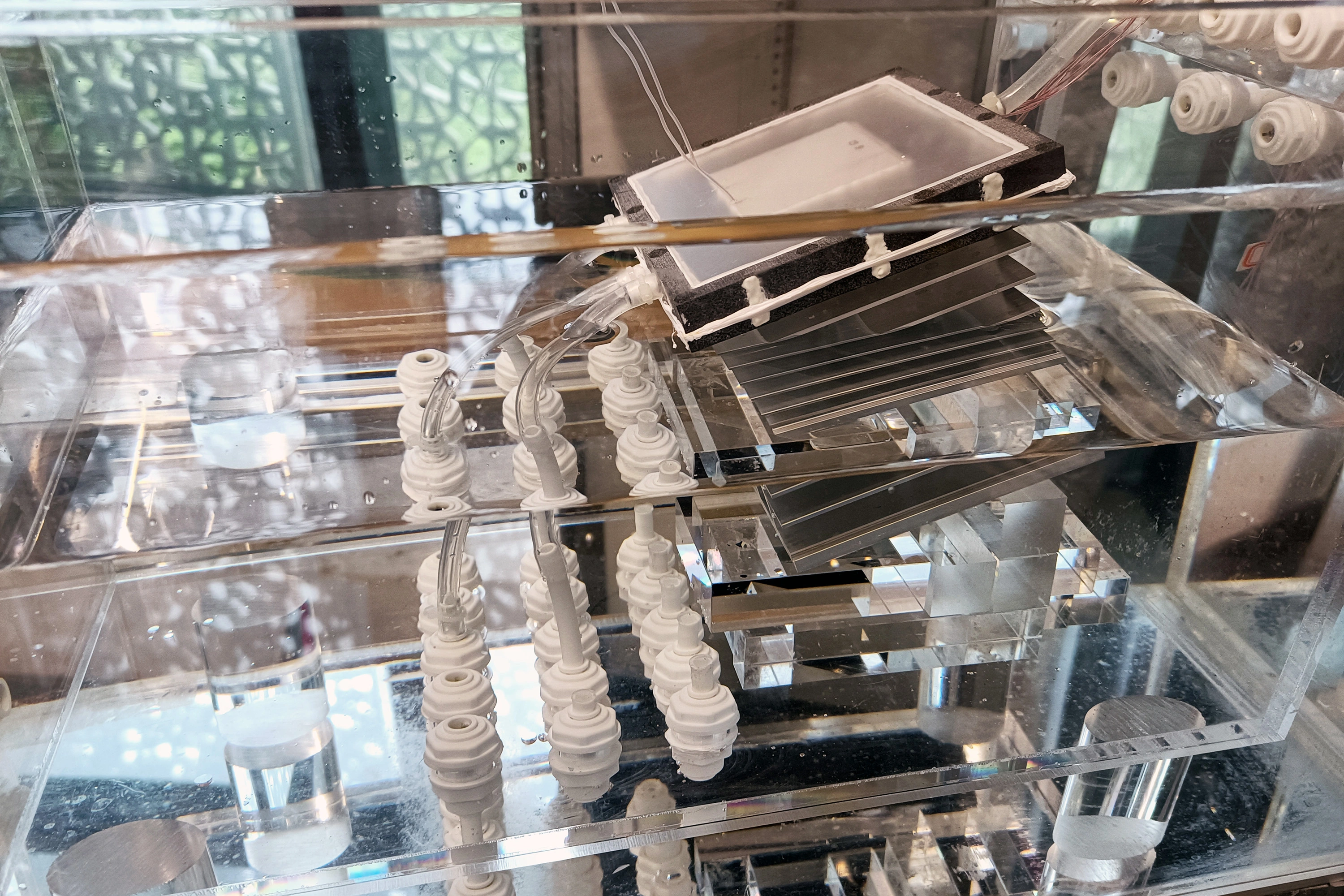Desalination system could produce freshwater that is cheaper than tap water::A new solar desalination system takes in saltwater and heats it with natural sunlight. The system flushes out accumulated salt, so replacement parts aren’t needed often, meaning the system could potentially produce drinking water that is cheaper than tap water.



Removed by mod
Desalination won’t touch a percentage of a percentage of a percentage of the brine produced by the sun simply by evaporation.
Our problem isn’t the byproduct, it’s how to return it to the sea in a distributed way rather than out a single pipe. That’s an engineering problem, not an ethical or environmental one.
Removed by mod
Let me put it in a way you might understand:
Ethical problem - Potentially no correct solution, tradeoffs likely.
Engineering problem - Smart people do maths until problem is solved.
We care but guess who doesn’t? Corporate Amer$ca
Which byproducts, Isn’t salt water just water + salt?
Or do you refer to the machine?
Removed by mod
The verdict on brine impact is not out yet AFAIK. It impact species differently.
Study of brine discharge from desalination plant finds good news and bad news (2019)
They are developing technologies to deal with brine like solar powered brine crystallization or mixing it with sea water before reintroducing it. More are discussed quickly in this review: Characteristics of Desalination Brine and Its Impacts on Marine Chemistry and Health, With Emphasis on the Persian/Arabian Gulf: A Review. That one is actually good and very readable to the layman (i.e me):
The conclusion puts it well
Much better explanation than my off the cuff attempt, great added detail.
Removed by mod
I believe most places pump in extra seawater to heavily dilute the brine, then release the extra-salty water over a wide area back onto the sea.
Removed by mod
Removed by mod
Salt brine is highly corrosive to anything in contact with it so it is difficult to move, and in high concentrations wreaks absolute havoc in surrounding ecosystems. There’s a reason the phrase ‘salting the earth’ doesn’t have a good connotation. Desalination on a small scale might not seem like an issue but when dealing with the waste at scale becomes a bigger issue than even the energy cost to perform.
This. I’m curious too, IIRC the byproduct of reverse osmosis is just salt.
The byproduct is a sort of like salt water, but a lot more concentrated. It’s mostly NaCl, but there’s also various other anions and cations such as Al, Ca, Mg, K, SO4 etc. Those metals came from the ocean, so you might be inclined to think that you can dump them back into the ocean. The problem comes when you dump a lot of that stuff and you get very high concentrations locally. When the concentration of those compounds is within the normal range, sea life can handle it. Once it’s above the limit, you can expect things to struggle or die. Eventually, it will get diluted in the ocean, but before that the concentrations will be high enough to cause damage to most living things.